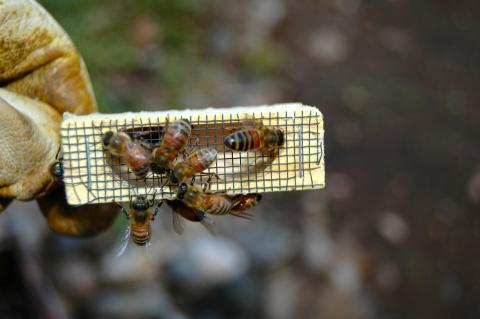In case you missed it – the business of beekeeping

Has your beekeeping hobby become more of a business? Do you want to dig in and make your hobby profitable? The following is a very brief overview of topics discussed at the March extension workshop.
MARKETING, VALUE WHAT YOU HAVE!
Branding your product in a unique way will create brand recognition and help create a customer base. How does your product stand out from your competitor? Aesthetics count!
Value your product and price it accordingly.
Grow your business slowly and intentionally. Love your business and show your customers how and why you love it.
Enterprise budgets are a tool to help you identify profitability and price determination. Each budget should be unique and determined with your own unique costs. Create your own enterprise budget and know your cost of production by using our Honey Production Budget Tool here!
WHEN ARE YOU A “BUSINESS”?
The difference between a hobby and a business depends on whether or not you intend to make a profit, and not just for pleasure or recreation. Either way you should report income to the IRS. If you are operating as a hobby, use the 1040 under “other income“, and speak with your accountant about your activities.
When scaling up your business and asking for a loan or a federal grant, a business plan is essential. You can work with your counties’ Extension Field Specialist or anyone on our agriculture business team to identify your goals and begin writing a business plan.
LAWS, ARE YOU BREAKING ONE?
Employees, whether they work for 1 day or 5 days a week, are subject to federal labor protection standards. Become familiar with the difference between an “employee” and an “independent contractor”. If an individual works under your direction, with your tools, they are an employee, subject to workers compensation and taxes.
Review the Legal Guide for New Hampshire Agricultural Producers to learn more about agricultural laws (including labor).
ARE YOU PUTTING YOURSELF AT RISK?
Your risk changes when you shift from giving your honey out as a gift to friends, to selling honey or products from the hive.
When you scale up and begin to sell product instead of giving it away, you are opening yourself up to risk. For example, your garage burns down, with your extractor in it, your homeowners insurance may not cover the replacement cost, because you are operating a business with that extractor. You are taking credit card sales on the web, and your customers’ information is hacked. Are you mitigating this risk? Make sure you have commercial coverage if you are selling honey.
Farm insurance is not like automobile insurance that you buy once online, and never think about again. Develop a relationship with your agent, and make sure they are informed of any changes to your operation so they can best protect you. If you began your operation by only selling raw honey, but now sell infused honey as well, they need to know to about this new product.
Farm Service Agency – emergency assistance for honeybee producers
Microloans for small businesses – talk with your local NH FSA representative about their specific programs.
Interested in more “business of beekeeping” subjects? Let us know!
